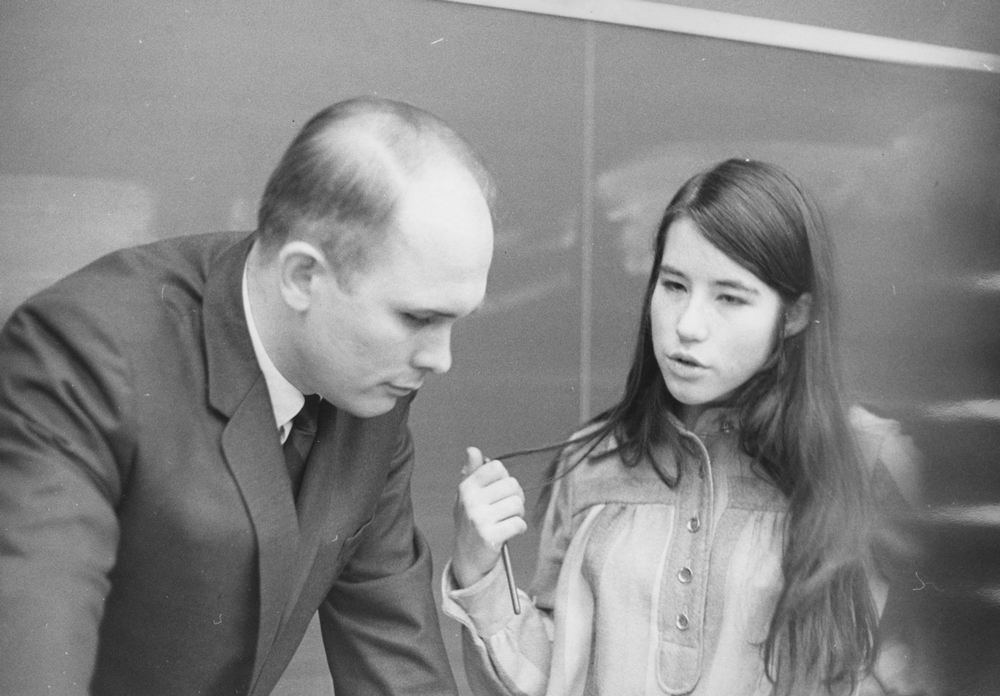None of the three University students who posted internal documents on their websites have received cease-and-desist letters from the Diebold Corporation, according to two of the students involved.
The three students, second-year Yitz Wasileski, third-year Marquis Eusung Hwang, and transfer student Ryo Chijiiwa all posted incriminating internal documents hacked from the Diebold Corporation on their personal websites in late October and early November as part of a nationwide campaign to expose serious flaws in the polling company’s practices.
Under the Digital Millennium Copyright Act of 1998, Diebold had been sending cease-and-desist letters to universities whose students posted the documents on their university webspace. The most recent statistics available show that among the 70 websites hosting the documents, 11 had received letters of cease and desist.
The University students say they were expecting to receive such letters within a few days of posting the documents.
“[Diebold] might be waiting for the outcome of the countersuit in California by the original two Swarthmore students, or they might have realized that [sending letters of cease-and-desist] wasn’t effective,” Chijiiwa said.
Wasileski agreed with Chijiiwa. “My guess is that they’ve realized they simply can’t send out C & D notices faster than we can put up new mirrors—that, and the fact that the EFF is now pursuing legal action against them for these strong-arm tactics,” Wasileski said.Chijiiwa said that the “disobedience aspect” of the campaign has subsided in recent days, as the issue has received more media attention and as the lawsuit against the corporation has proceeded in California. He said that the students involved are “on hold” at the moment, awaiting the outcome of the lawsuit in California.
Wasileski said that campaign activity focused on sorting through the memos for evidence of suspicious activity on behalf of Diebold so that legal action against the corporation could be pursued more effectively.
“One member of the protest has got a pretty extensive catalog going, separately categorizing security violation, blatant contravention of election law, and others,” Wasileski said.
The students involved are concerned that despite the support they have received, the University community at large might not necessarily comprehend the enormity of the relevant issues. “The central issue, of course, is the unreliability of e-voting systems,” said Chijiiwa.
Chijiiwa referenced one Florida official who was quoted as saying that a 10 percent margin of error on an electronic voting system was considered “smooth.” He called such a margin unacceptable, and added that in a contest as close as the 2000 Presidential Election, it is all the more essential that voting systems be accurate.
Despite the corruption, the students also believe the issue of the reliability of e-voting systems to be nonpartisan. “I don’t personally consider this to be a partisan issue. Most people involved in the protest—both Democrats and Republicans—say that something shady is going on, and it’s in the interest of the American people as a whole to get to the bottom of the matter, in order to re-establish our right to vote and to have that vote count,” Wasileski said.
Chijiiwa said that the voting process is vital in protecting the democratic system in America, and that the faulty electoral process poses a direct threat to our governmental structure.
Other issues the campaign involves include the relationship among copyright protection, the Digital Millennium Copyright Act, and academic and political freedom.
“Ever since the DMCA was enacted, there have been multiple cases of the DMCA being used, not to protect intellectual property, but to suppress research and speech,” Chijiiwa said.
He added that since the Maroon first covered the campaign, he has been called, half-jokingly, a hacker and an anarchist. “There are some indications that the documents were leaked from an internal source, in which case no ‘hacking’ was involved in the first place,” he said.
He said that no students or universities involved have been sued, while at present the Diebold Corporation is facing charges in California.








